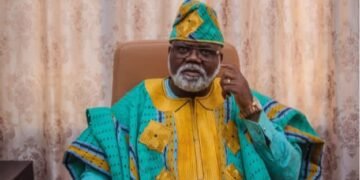The Higher National Diploma (HND) and Bachelor of Science (BSc) degrees represent two distinct educational pathways in Nigeria, each with its specific framework and societal implications. Universities typically award the BSc, emphasizing theoretical knowledge and academic research, while polytechnics and technical institutions typically award the HND, focusing on practical skills and vocational training. This fundamental difference in educational philosophy shapes the perception and acceptance of each qualification in the professional landscape.
Historically, the dichotomy between HND and BSc qualifications has roots in Nigeria’s colonial education system, which prioritized university degrees over technical education. As a result, graduates of Nigerian polytechnics often face bias when competing against their university counterparts for job opportunities. In both the public and private sectors, a BSc is frequently viewed as a more prestigious credential, leading to disparities in the employment prospects and career advancement of HND holders.
The discrimination between the HND holders and BSC holders is not limited to Nigeria as many foreign institutions, including in the USA and Canada, do not consider HND as a degree but a mere diploma, hence, they do not consider the HND certificate as qualify for a Masters Degree, even with a postgraduate diploma.
Moreover, the implications extend beyond individual circumstances; they affect workforce dynamics and the overall economy. As Nigeria continues to strive for comprehensive development, addressing the HND and BSc dichotomy becomes imperative. Recognizing the value of various educational paths and creating equitable opportunities within the job market may foster a more balanced and effective workforce, essential for driving national growth.
Recent Legislative Developments
In recent years, the issue of discrimination between Higher National Diploma (HND) and Bachelor of Science (BSc) holders in Nigeria has gained significant attention among lawmakers and stakeholders. Legislative efforts have been initiated to address this dichotomy, aiming to ensure equitable treatment for graduates of both educational pathways.
The 9th House of Representatives passed a bill seeking to end the dichotomy between university degrees and the Higher National Diplomas awarded by polytechnics. The bill proposes to make it a crime for any person or organisation in the public and private sectors to discriminate against HND certificate holders. The bill, titled, “Bill for an Act to Abolish and Prohibit Dichotomy and Discrimination between First Degree and Higher National Diploma in the Same Profession/Field for the Purpose of Employment; and for Related Matters,” prohibits discrimination between HND and bachelor’s degree, and prescribes equality among them.
Part of the content of the bill says, “Notwithstanding any provision in any legislation, circular, regulation or policy guideline, First Degree and Higher National Diploma shall be deemed construed and treated as equivalent qualifications for employment and career progression at the workplace in the public and private sectors of the Nigerian economy,” the bill reads in part.
“Any provision in-laws, enactments, instruments, circulars, schemes of service, directives, or policies by whatever name called, which is inconsistent with the provisions of this bill, shall, to the extent of the inconsistency, be null and void, and of no effect.”
One of the primary objectives of these proposed bills is to abolish the longstanding disparity between HND and BSc qualifications, which has often led to unequal employment opportunities in both the public and private sectors. The bills advocate for policies that promote inclusivity and equal recognition of qualifications, thereby enabling HND holders to compete on a level playing field with their BSc counterparts. This legislative push garnered responses from a range of stakeholders, including government officials, educational authorities, and unions representing the interests of graduates.
The bill never saw the light of the day as former President Muhammadu Buhari declined assent to the bill, which would have ended the controversy.
This setback raised concerns regarding the political will to enact meaningful change in the educational sector. Stakeholders have expressed disappointment over this decision, arguing that it further entrenches systemic inequalities within the employment framework and hampers national development.
As discussions around these legislative measures continue, the implications for HND holders are significant. If successful, proposed changes could lead to improved job prospects, better recognition of technical and vocational qualifications, and an overall enhancement of the education system in Nigeria. Ultimately, the success of such initiatives hinges on the commitment of lawmakers and the collective advocacy of stakeholders, aiming to foster equality within the educational landscape.
The Role of the Civil Service and Mandatory Training
The Nigerian civil service plays a critical role in setting the professional standards for workforce engagement and career advancement. For many years, there has been a palpable divide between holders of Higher National Diplomas (HND) and Bachelor of Science (BSc) degrees, particularly in recognition and opportunities. Recently, the civil service has instituted mandatory examinations and training specifically for HND graduates as a requirement for career progression. This initiative has sparked considerable debate and reevaluation of the value placed on HND qualifications within the public sector.
The immediate past Head of Service of the Federation, Folashade Yemi-Esan, articulated that these mandatory training and examination requirements are designed to elevate the competency levels of HND holders to be on par with their BSc counterparts. She argues that such measures ensure that all staff, regardless of their educational background, possess the necessary skills and qualifications to effectively contribute to the goals of the civil service. However, this stance has drawn mixed reactions from the public and stakeholders in the education and labour sectors.
But, can’t the Nigerian National Assembly, the Education ministry and other related bodies rework the Polytechnic education curriculum and pass a bill to equate the HND and BSC certificates, and probably issue the same certificate for the graduates of both Polytechnic and universities?
Suffice it to say that imposing additional barriers on HND graduates undermines the legitimacy of their training and perpetuates an unjust hierarchy in the professional landscape. It is reasonable to believe that HND holders’s qualifications and the experiences gained through practical training should be sufficient for career advancement in the civil service. This sentiment is increasingly echoed in discussions around equality and inclusiveness in the workplace. The civil service’s approach could be seen as a move to create a more skilled workforce, yet it raises questions about equity and recognition of diverse pathways to professional development.
Ultimately, the ongoing discourse about the civil service’s mandate is indicative of a broader societal challenge in Nigeria, where educational qualifications continue to affect employment opportunities, promotion prospects, and overall professional development for HND graduates.
Comparative Perspectives and Future Prospects
In examining the distinction between Higher National Diplomas (HNDs) and Bachelor of Science (BSc) degrees, it is essential to consider international perspectives, particularly from countries like the United States and Canada. In these nations, HNDs are frequently categorized as diplomas or technical certifications rather than academic degrees. This classification poses significant challenges for Nigerian polytechnic graduates seeking opportunities abroad. While HND holders may possess practical skills and knowledge, societal perception often diminishes their qualifications compared to their BSc counterparts. As a result, many HND graduates face limitations when applying for further education or professional positions globally.
Furthermore, this comparative viewpoint reveals broader implications for the recognition of qualifications within Nigeria itself. The lack of alignment between domestic and international educational standards can hinder the academic and professional mobility of individuals who have pursued a polytechnic education. This disparity may lead to a devaluation of the skills acquired through polytechnic training, resulting in an underutilized workforce. Consequently, many graduates may struggle to secure employment that reflects their abilities and qualifications, ultimately impacting the nation’s economic growth.
However, recent political shifts in Nigeria signal a potential for change. With increased emphasis on improving educational standards and equitable recognition of diverse qualifications, there is a hope that current leadership will prioritize policies that advocate for the recognition of polytechnic education. By fostering an environment where HND holders are afforded equal opportunities in employment and further education, the Nigerian government could enhance the value of vocational training. Ultimately, these efforts could contribute to a more balanced perception of HNDs and facilitate a brighter future for polytechnic graduates in Nigeria and beyond.
*Mimiola, an award-winning journalist, sent in this piece.











